Aparajito (Bengali: ??????? Ôporajito; The Unvanquished) is a 1956 Indian Bengali drama film written and directed by Satyajit Ray (1921–1992), and is the second part of The Apu Trilogy. It is adapted from the last one-fifth of Bibhutibhushan Bannerjee's novel Pather Panchali (1929) and the first one-third of its sequel Aparajito (1932). It starts off where the previous film Pather Panchali (1955) ended, with Apu's family moving to Varanasi, and chronicles Apu's life from childhood to adolescence in college, right up to his mother's death, when he is left all alone.
| Aparajito | |
|---|---|
A poster of Aparajito | |
| Directed by | Satyajit Ray |
| Produced by | Epic Films (Satyajit Ray) |
| Screenplay by | Satyajit Ray |
| Based on | Pather Panchali and Aparajita by Bibhutibhushan Bandopadhyay |
| Starring | Kanu Banerjee Karuna Banerjee Pinaki Sen Gupta Smaran Ghosal Ramani Sen Gupta Charaprakash Ghosh Subodh Ganguly |
| Music by | Ravi Shankar |
| Cinematography | Subrata Mitra |
| Edited by | Dulal Dutta |
| Distributed by | Merchant Ivory Productions / Sony Pictures Classics (In US) |
Release date | 11 October 1956 |
Running time | 113 minutes |
| Country | India |
| Language | Bengali |
When Ray started making Pather Panchali, he had no plans of following it up with a sequel. The critical and commercial success of the film prompted him to start making Aparajito. Unlike his previous venture, where he stayed faithful to the novel, Ray took some bold artistic decisions here, such as portraying the relationship between Apu and his mother in a very different manner from the book. As a result, in contrast to its predecessor, the film was not received well locally; Ray recalled that "as for the suburban audience, it was shocked by the portrayal of the mother and son relationship, so sharply at variance with the conventional notion of mutual sweetness and devotion".
Critical reception outside of India, however, was overwhelmingly positive. It won 11 international awards, including the Golden Lion and Critics Award at the Venice Film Festival, becoming the first ever film to win both. Veteran film-maker Mrinal Sen said he considers it to be one of the best Indian movies he had ever seen. Bosley Crowther said that "It is done with such rare feeling and skill at pictorial imagery, and with such sympathetic understanding of Indian character on the part of Mr. Ray, that it develops a sort of hypnotism for the serene and tolerant viewer." The critical acclaim this movie received encouraged Ray to make another sequel, Apur Sansar (1959), which was equally well received, and thus concluded one of the most critically acclaimed movie trilogies of all time, as Roger Ebert later pointed out—"The three films ... swept the top prizes at Cannes, Venice and London, and created a new cinema for India — whose prolific film industry had traditionally stayed within the narrow confines of swashbuckling musical romances. Never before had one man had such a decisive impact on the films of his culture."
Screenplay
In 1920, Apu (Pinaki Sen Gupta) and his parents, who have left their home in rural Bengal, have settled into an apartment in Varanasi where his father Harihar (Kanu Banerjee) works as a priest. Harihar is making headway in his new pursuits: praying, singing, and officiating among the ghats on the sacred river Ganges. Harihar catches a fever and soon dies, however, and his wife Sarbajaya (Karuna Banerjee) is forced to begin work as a maid. With the assistance of a great-uncle, Apu and his mother return to Bengal and settle in the village Mansapota. There Apu apprentices as a priest, but pines to attend the local school which his mother is persuaded to allow. He excels at his studies, impressing a visiting dignitary, and the headmaster takes special interest in him.
Within a few years, the teenaged Apu (now played by Smaran Ghosal) has done well enough to receive a scholarship to go to Kolkata for further studies. Sarbajaya feels abandoned and frightened by this, but gives in and lovingly packs his suitcase. Apu travels by train to the city and starts working at a printing press, after school hours, to subsist. He becomes more accustomed to the city life and feels out of place in the village. Sarbajaya expects visits from him, but he visits only a few times. Her loneliness and yearning for her son continue to grow. She becomes seriously ill, but does not disclose her illness to Apu, lest his studies get disturbed. When Apu finally comes to know about her poor health, he returns to the village to find that she has died. Bhabataran, Apu's great uncle, requests that he stay there and work as a priest. Apu rejects the idea and returns to Kolkata.
- Pinaki Sen Gupta as Apurba "Apu" Roy (boy)
- Smaran Ghosal as Apu (adolescent)
- Kanu Banerjee as Harihar Roy, Apu's father
- Karuna Banerjee as Sarbajaya Roy, Apu's mother
- Ramani Ranjan Sen as Bhabataran, Sarbajaya's uncle and Apu's great uncle
- Charu Prakash Ghosh as Nanda Babu
- Subodh Ganguly as Headmaster
Origin and development
Aparajito was based on the last fifth of the novel Pather Panchali and the first third of the novel Aparajito by Banerjee. The novel Pather Panchali is a classic bildungsroman (a type of coming-of-age story) in the canon of Bengali literature. It first appeared as a serial in a Calcutta periodical in 1928 and was published as a book the next year. According to Ray's biographer, Robinson, among the three films of the Apu trilogy, Aparajito bears the closest resemblance with its literary source. Banerjee's depiction of the mother-son relation fascinated Ray. Robinson writes: "Their relationship had some echoes on a purely psychological plane for him". Ray was in particular moved by Banerjee's "daring and profound revelation", that "for some time after Sarbajaya's death Apu becomes familiar with a strange sensation...his immediate reaction had been one of pleasure, like a surge of release...a delight in the breaking of bonds...there was no doubt he loved his mother, but the news of her death had at first brought him pleasure—he couldn't avoid the truth." Ray's wife Bijoya also voiced her concerns when she came to know the plot, asking him "Do you think people in our country will accept a son's relief at having won his freedom at his mother's death?" Ray was aware of the risk, saying "let's see what happens. After all, later Apu was full of regret at his initial reaction upon his mother's death. And as he realized, her death actually came as a very big blow to him."
Script and crew
The novels had a female character named Leela who influenced Apu's alienation from his mother when he was living in Calcutta. After rejecting two aspirants, Ray found one actress to portray the character, but the actress was not allowed to act in the film by her fiancé. Eventually, Ray removed the character from the script reluctantly. Ray himself later commented that he thought Leela, with whom Apu had an understated affair, was a strong reason behind Apu's attraction of Calcutta, and that without Leela's presence in the film, Apu's attraction to Calcutta may seem to some extent artificial. "I'm never sure," he said, "whether Apu's attachment to the city without the element of the girlfriend is strong enough, the pull that the city exerts is a bit abstract." However, when he watched the movie later, he did not feel the absence of Leela.
Subrata Mitra, the cinematographer for The Apu Trilogy, made his first technical innovation with this film: the introduction of bounce lighting. According to the Internet Encyclopedia of Cinematographers:
The fear of monsoon rain had forced the art director, Bansi Chandragupta, to abandon the original plan to build the inner courtyard of a typical Benares house in the open and the set was built inside a studio in Calcutta. Mitra recalls arguing in vain with both Chandragupta and Ray about the impossibilities of simulating shadowless diffused skylight. But this led him to innovate what became subsequently his most important tool—bounce lighting. Mitra placed a framed painter white cloth over the set resembling a patch of sky and arranged studio lights below to bounce off the fake sky.
The film has been enthusiastically received by critics. James Berardinelli wrote:
Aparajito was filmed forty years ago, half way around the world, yet the themes and emotions embedded in the narrative are strikingly relevant to modern Western society (thus explaining why it is called a "timeless classic")....Aparajito is an amazing motion picture. Its rich, poetic composition is perfectly wed to the sublime emotional resonance of the narrative. For those who have seen Pather Panchali, Aparajito provides a nearly-flawless continuation of the journey begun there. Yet, for those who missed Ray's earlier effort, this film loses none of its impact. On its own or as part of the Apu Trilogy, Aparajito should not be missed.
Roger Ebert said, "the relationship between Apu and his mother observes truths that must exist in all cultures: how the parent makes sacrifices for years, only to see the child turn aside and move thoughtlessly away into adulthood....It is about a time, place and culture far removed from our own, and yet it connects directly and deeply with our human feelings. It is like a prayer, affirming that this is what the cinema can be, no matter how far in our cynicism we may stray."
During the Venice Film Festival, Penelope Houston, who was among the jury, broke protocol and told Ray personally: "I think it was magnificent". The chairman of the award ceremony, René Clair, was initially reluctant to give it the coveted prize; he eventually acquiesced, but not before saying to Houston: "I hope Ray will go away and learn how to make films!" The Japanese director Akira Kurosawa had an important film entered in that year's festival competition, Throne of Blood (Kumonosu-j?), which lost to Ray's film. However, many years later, Kurosawa's daughter generated a list of 100 films admired by him; this list quoted him as having affirmed the jury's choice as "ABSOLUTELY right" (though he misidentified the winning film as Pather Panchali).
Emanuel Levy said: "Made in 1956 (and released in many countries a year later), 'Aparajito' indicates India’s processes of modernization and industrialization and their inevitable impact on both individual and culture. Nonetheless, in his upbeat outlook, Ray suggests that individuals can rise to the occasion and might not be compromised by the corruption that characterizes the society at large." Bosley Crowther, who had earlier given a lukewarm response to Pather Panchali, saying that the film was so amateurish that "it would barely pass for a rough cut in Hollywood", praised it, saying that "Mr. Ray's remarkable camera catches beauty in so many things, from the softness of a mother's sad expression to the silhouette of a distant train, that innuendos take up the slack of drama. Hindu music and expressive natural sounds complete the stimulation of the senses in this strange, sad, evocative film." At Rotten Tomatoes, Aparajito has a 94% fresh rating based on an aggregate of 18 reviews with an average rating of 8.7/10.
Aparajito won the Golden Lion at the 1957 Venice Film Festival and, to date, remains the only film sequel to ever win the grand prize at the prestigious Venice, Berlin or Cannes Film Festivals. Along with the Golden Lion, it received the Cinema Nuovo Award and the FIPRESCI Award Critics Award in the process becoming the first movie to win all three.
Ray also won the Golden Gate awards for Best Picture and Best Director at the San Francisco International Film Festival in 1958, along with the Critics Award for this film.
The film won the Bodil Award for Best Non-European Film of the Year at Denmark in 1967.
It won the Selznick Golden Laurel for Best Film at the Berlin International Film Festival
It also received the FIPRESCI Award and Wington Award at the British Film Institute Awards at London Film Festival
The film was nominated for the Best Film and Best Foreign Actress at the 1959 British Academy Film Awards.
In 1992, Sight & Sound (the British Film Institute's film magazine) ranked The Apu Trilogy at No. 88 in its Critics' Poll of all-time greatest films, while Aparajito itself was ranked separately at No. 127 on the same list. In 2002, a combined list of Sight & Sound critics' and directors' poll results included Aparajito in its top 160. In 1998, the Asian film magazine Cinemaya's critics' p
Watch movie Aparajito online on Amazon
Watch movie Aparajito online
Watch The Movie On PrimeKites Full HD Movie Download

Mahabali Hanuman Full HD Movie Download
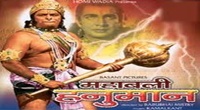
Andha Yudh Full HD Movie Download
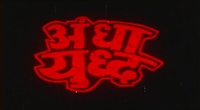
Gulam Begum Badshah Full HD Movie Download
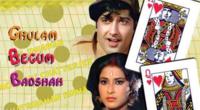
Pyar Ka Sapna Full HD Movie Download
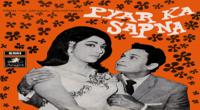
Rokkk Full HD Movie Download
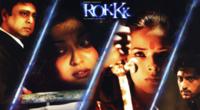
Teri Talash Mein (1990) Full HD Movie Download
.jpg)
Karisma Kali Ka Full HD Movie Download
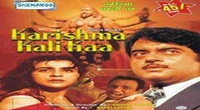
Nadiya Ke Par Full HD Movie Download
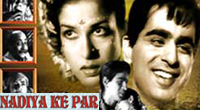
Spirit Bear - The Simon Jackson Story Full HD Movie Download

Due Date Full HD Movie Download

Alladin And The Magic Lamp Full HD Movie Download

Sundarimare Sookshikkuka Full HD Movie Download
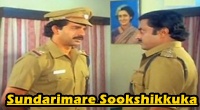
Bobby Full HD Movie Download

Kali Kaalam Full HD Movie Download
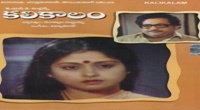
Tiger Harichandraprasad Full HD Movie Download
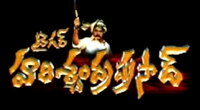
Palleturi Pidugu Full HD Movie Download

Gruha Lakshmi Full HD Movie Download
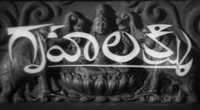
Kiskinda Kanda Full HD Movie Download
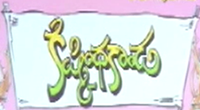
Lafangey Parindey Full HD Movie Download

Tashan Full HD Movie Download
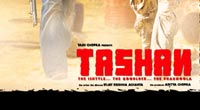
Download latest Movie from bollywood
- 1> baaghi 3
- 2> THE SKY IS PINK MOVIE FULL STORY AND REVIEW
- 3> Luka Chuppi
- 4> TO ALL THE BOYS I’VE LOVED BEFORE
- 5> Kabir Singh
- 6> Street Dancer 3D
- 7> Simmba
- 8> Gone Girl
- 9> The Girl Who Lived
- 10> Ludo
- 11> DILWALE DULHANIA LE JAYENGE
- 12> GUILTY
- 13> The Godfather
- 14> Adventures of Rusty
- 15> Sooryavanshi
- 16> Satyameva Jayate 2
- 17> Thappad
- 18> Bhool Bhulaiyaa 2
- 19> KGFChapter 2
- 20> Mardaani 2
- 21> Pinjar
- 22> Shivaji maharaj
- 23> Ek Villian 2
- 24> Hungama 2
- 25> Divergent
- 26> Mumbai Saga
- 27> The Internship
- 28> HIT (telugu)
- 29> Panga
- 30> The perfect date
- 31> 16 December
- 32> Gopala Gopala (Telugu)
- 33> Brahmastra
- 34> Gangubai Kathiawadi
- 35> Manmadhudu
- 36> Nenu local
- 37> Mahanati
- 38> Shatamanam bavathi
- 39> Lagaan
- 40> After
- 41> MOM
- 42> Shamshera
- 43> Raguvaran BTech
- 44> Khakee
- 45> The villain
- 46> OM
- 47> Mr. perfect
- 48> Bueatifull mind
- 49> Hichki
- 50> Gabbar Singh
- 51> Jogi
- 52> Before Sunrise
- 53> Before Sunset
- 54> Before Midnight
- 55> The Big Bull
- 56> Top Gun: Maverick
- 57> The Purge
- 58> The Sky is Pink
- 59> Laxmmi Bomb
- 60> Sadak 2
- 61> Sufna
- 62> Prithviraj
- 63> PK
- 64> Coolie No 1(2020)
- 65> Black Widow
- 66> Dear Zindagi
- 67> Dil Bechara
- 68> PHIR HERA PHERI
- 69> WAR
- 70> Dostana
- 71> RRR: Roudram Ranam Rudhiram
- 72> Maidan
- 73> Dabbang 3
- 74> Chhalaang
- 75> life as we know it
- 76> SherShaah
- 77> Sandeep Aur Pinky Faraar
- 78> Event Horizon
- 79> 83
- 80> Radhe: Your Most Wanted Bhai
- 81> Gunjan Saxena: The Kargil Girl
- 82> Mr India
- 83> Vivah
- 84> Anokha Bandhan
- 85> Ghost
- 86> Bhoot: Part One - The Haunted Ship
- 87> Haseen Dilruba
- 88> Laal Singh Chaddha
- 89> Qismat
- 90> Rajput
- 91> Drive
- 92> Dil Chahta Hai
- 93> Dil Ki Baazi
- 94> Dil Ka Rishta
- 95> Teesri Manzil
- 96> Dil
- 97> Love Aaj Kal
- 98> Khaali Peeli
- 99> Bunty Aur Babli 2
- 100> Atrangi Re
- 101> Gulabo Sitabo
- 102> Jodi
- 103> Suraj Pe Mangal Bhari
- 104> Deewana
- 105> Attack
- 106> Sardar Udham Singh
- 107> Toofan
- 108> THE LOVEBIRDS
- 109> Jersey
- 110> Ginny Weds Sunny
- 111> Thalaivi
- 112> Shiddat
- 113> Angels vs Zombies
- 114> Koi Mil Gya
- 115> Thank God
- 116> Bhuj: The Pride of India
- 117> Hum Aapke Hain Kaun
- 118> The Platform
- 119> Bird Box
- 120> Roohi Afzana
- 121> Torbaaz
- 122> Nikamma
- 123> World War Z
- 124> Extraction
- 125> Train to Busan
- 126> Life of Pi
- 127> SHAADI MEIN JROOR AANA
- 128> Himmat Aur Mehnat
- 129> To All The Boys: P.S. I Still Love You
- 130> Mimi
- 131> Good Newwz
- 132> Shubh Mangal Zyada Saavdhan
- 133> Raabta
- 134> Harry Potter and the Philosopher's Stone
- 135> Harry Potter and the Chamber of Secrets
- 136> Chhapaak
- 137> War of the Worlds
- 138> Harry Potter and the Prisoner of Azkaban
- 139> Harry Potter and the Goblet of Fire
- 140> MURDER MYSTERY
- 141> Shakuntala Devi
- 142> Bachchan Pandey
- 143> Jayeshbhai Jordar
- 144> Sheer Qorma
- 145> Saina
- 146> 'O' Pushpa I hate tears
- 147> Kedarnath
- 148> MS Dhoni The Untold Story
- 149> Chhichhore
- 150> Badhaai Ho
- 151> Unstoppable
- 152> Oz the Great And Powerful
- 153> The Girl on the Train
- 154> Haathi Mere Saathi 2020
- 155> The Conjuring: The Devil Made Me Do It
- 156> Gandhi Se Pehle Gandhi
- 157> The Song of Scorpions
- 158> Srimanthudu
- 159> Hello Guru Prema Kosame
- 160> Beauty and The Beast
- 161> Black Panther
- 162> Charlie and the Chocolate Factory
- 163> Bole Chudiyan
- 164> Fidaa
- 165> Duvvada Jagannadham
- 166> Bruce Lee: The Fighter
- 167> Hyper
- 168> Yaara
- 169> Red (2020)
- 170> Shivam
- 171> That Is Mahalakshmi
- 172> Nishabdham
- 173> Aashram 2020 web series
- 174> Laxmii
- 175> Mismatched
- 176> STUDENT OF THE YEAR 2
- 177> NAIL POLISH
- 178> Ramprasad Ki Tehrvi
- 179> KAAGAZ
- 180> 12 o Clock
- 181> The Power
- 182> bolo hau
- 183> Tribhanga
- 184> JAMUN
- 185> Madam Chief Minister
- 186> Maasaab
- 187> Aadhaar
- 188> Tanhaji
- 189> Bhaagi 3
- 190> Bhootnath
- 191> MALANG
- 192> Jai Mummy Di
- 193> Haathi Mere Saathi 2021
- 194> Shakeela
- 195> Unpaused
- 196> Annayya
- 197> Vamsoddharakudu
- 198> Mrugaraju
- 199> Narasimha Naidu
- 200> Sankranti
- 201> Manasu Maata Vinadhu
- 202> Anjaane
- 203> Apaharan
- 204> Bachke Rehna Re Baba
- 205> Bewafaa
- 206> Roohi
- 207> Radhe
- 208> Zindagi Khoobsoorat Hai
- 209> Yeh Mohabbat Hai
- 210> Yeh Kya Ho Raha Hai?
- 211> The Tomorrow War
- 212> DehradunDiary
- 213> Meri Shaadi Karaoo
- 214> Matruu Ki Bijlee Ka Mandola
- 215> No One Killed Jesica
- 216> Aag Ka Goola
- 217> Eight Million Dollars
- 218> Three Hundred
- 219> Cats and Dog
- 220> Decoy
- 221> Gold Rush
- 222> You Have Got Mail
- 223> Final Destination three
- 224> Tofan
- 225> Jungle
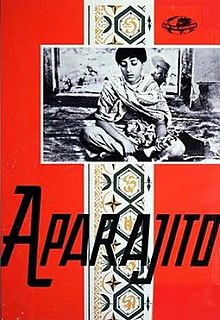 Story of movie Aparajito :
Story of movie Aparajito : 